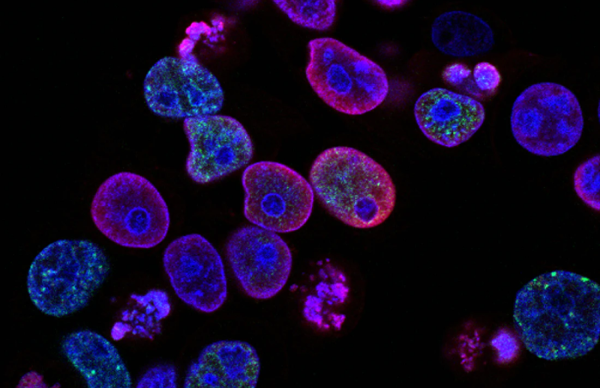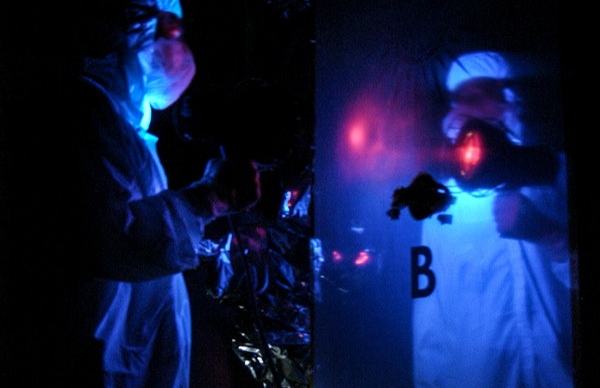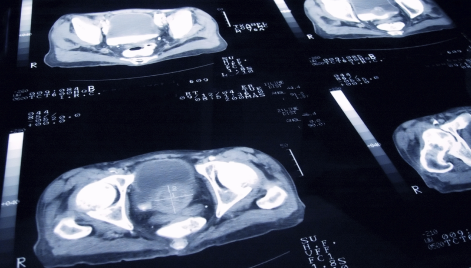AI-powered precision medicine.
Bridging technology & clinical expertise.
Unlocking insights from each patient PSMA PET/CT images so clinicians can make decision more confidently and efficiently.

“We want to use AI to assist physicians to take best clinical decisions. AI + doctor’s clinical experience can enable precision medicine and improve patient care.”

From the spark of this industry-transforming idea, our passionate team has set out on a mission to develop AI solutions with the virtuous goal of improving patient care and outcomes.
A physician scientist, a machine learning expert and a software developer walk into a lab. By combining the most advanced technological innovations in their fields, a trio of visionaries are dreaming in revolutionizing the way prostate cancer is diagnosed and treated.
deepPSMA
Automatic detection and quantification of prostate cancer tumors using PSMA PET/CT imaging.

deepTrack
Automatic lesion tracking for treatment response evaluation using PSMA PET/CT imaging.

deepPredict
Prediction of pathology results or response to treatment using PSMA PET/CT imaging.

Leverage artificial intelligence to enable precision medicine in prostate cancer.

The backbone of DeepMI is to revolutionize the way prostate cancer is diagnosed and treated by the use of Artificial intelligence (AI).
AI is a disruptive technology that involves the use of computerised algorithms to dissect complicated data and identify image features undetectable by the human eye.
Bringing the benefits of AI to patients.

DeepMI’s mission is to use technology to learn the knowledge of experts’-in-the-field and integrate these information into one validated medical product, making it available for everyone.
AI is helping us to do that in exciting ways, solving problems for healthcare system, clinicians, and patients.


Next-generation molecular imaging in prostate cancer
PSMA PET/CT is the most sensitive imaging technique available for detection of prostate cancer tumors.
PSMA PET scans use a radioactive substance to detect areas of the body where the PSMA (or prostate-specific membrane antigen) protein is found, showing the presence of prostate cancer cells.
The PSMA PET/CT has 92% accuracy in detecting tumor lesions, compared to only 65% accuracy for conventional imaging, CT and bone scan.

PSMA-targeted molecular radiotherapy for advanced prostate cancer
PSMA-targeted molecular radiotherapy consists of an atom, which emits beta radiations, combined with a cell-targeting molecule that seeks and destroy prostate cancer cells.
Because it targets the cancer cells, the radiation exposure to healthy cells is limited. Candidates for this PSMA-targeted therapy are screened with a PSMA-PET/CT to verify the presence of PSMA-positive cancer tumor, a concept which is called Theranostics.
Theranostics can be used as a vehicle for personalized treatment because it can be tailored to molecular proprieties of the cancer tumor.
DeepMI’s AI Principles
The ways artificial intelligence is built and deployed will significantly affect both doctors and patients. Our AI Principles guide the development and use of artificial intelligence in our research and products for the benefit of people, avoiding unintended consequences.
We develop AI technologies which should:
Augment and empower doctors in the clinical
decision-making process.
Offer a ‘second-view’ in reporting results of
diagnostic procedures.
Be validated in clinical trials before implemented in practice.
Be built and tested for safety.
Should have protection against deliberate or
inadvertent misuse.
We will not pursue with AI technologies which:
Aim to replace doctors.
Are used alone without doctors’ supervision to
report results of diagnostic procedures.
Do not prove efficacy and safety in clinical trials.
Are likely to cause overall harm.
Are a ‘black-box’ for the doctors.
Sounds interesting?
Unlocking insights from each patient PSMA PET/CT
images so clinicians can make decision more
confidently and efficiently.